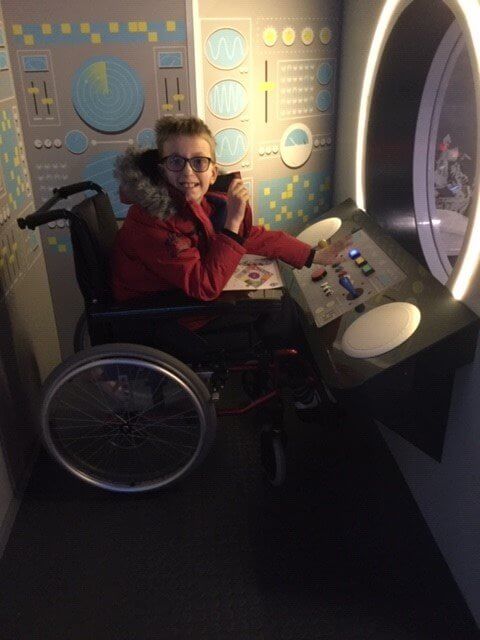According to a report published today by Disability Law Service, Leeds University, Cerebra and the BBC, at least 41 Councils across England have policies that prevent autistic children from accessing a care assessment. This is discrimination under the Equality Act. It is wholly unlawful behaviour.
The 41 Local Authorities have adopted policies that exclude autistic children from a Children Act 1989 assessment by their Children with Disabilities team unless they have another disability or a formal diagnosis of autism (which can take many months or even years to receive).
This is unlawful. Local Authorities have a duty to provide services appropriate to an autistic child’s needs under the Children Act 1989. Moreover, a policy that excludes children who are autistic from appropriate assessment and therefore from appropriate care constitutes discrimination under the Equality Act 2010.
Rt Hon Sir Ed Davey MP, a patron of Disability Law Service has today written an open letter calling on all Local Authorities in England to ensure that their policies are lawful. The campaign is not currently naming any individual local authority, but Sir Ed will be writing to the 41 authorities the study identified to highlight how their policies are in breach of the law, and to give them both a chance to respond and an opportunity to amend their policies.
Autism is a lifelong disability that affects how people communicate and interact with the world. All autistic people share difficulties around communication and social interaction but face varying challenges and need different levels of support. This can range from 24-hour care to clearer communication and a little longer to do things at work or school.
Sir Ed Davey said:
‘It is shocking that at least 41 Local Authorities across England are breaking the law by discriminating against autistic children. While Government underfunding of Special Education Needs and Disabilities is severe, that is no excuse for discrimination. Most councils are abiding by the law. All councils should.
“The law requires all disabled children to be given proper care, but many councils have adopted a policy that excludes many autistic children from an appropriate assessment. The case studies in this report are particularly heart-breaking – every child has one chance at childhood, and so many are being denied their chance.
“This new evidence and report from The Disability Law Service in partnership with Cerebra, the BBC and the School of Law at Leeds University demands a response from Ministers and councils: this injustice must be rectified as soon as possible.’
Priya Bahri of Disability Law Service, the lead author of the report, said:
‘Without sufficient and adequate support in place, children and families are often pushed to breaking point because of the barriers presented to them. The Children Act 1989 provides that disabled children are entitled to services that meet their needs and therefore policies which prevent this from happening need to be urgently reviewed and changed. We hope that we can make positive change with this campaign to ensure that every disabled child has access to services and support that meets their needs’.
Jane Harris, Director of External Affairs at the National Autistic Society, said:
‘This is a damning report, revealing how autistic children are routinely being failed by a social care system starved of investment. Parents tell us they’re asking for help in desperate situations but too often they’re being turned away.
It is completely unacceptable for a council to deny a child an assessment simply because an autistic child does not have another condition. It is equally wrong for a council to withhold support from someone just because they do not have a formal diagnosis. Families are left struggling to support their children without training or funding. And without extra help (like short breaks) they can end up isolated and alone, struggling to cope day-to-day.
Councils should make decisions about support based on a child’s needs. Without this, autistic children will struggle at home and at school and could end up isolated. No one would accept this situation for their child. And we won’t accept it for autistic children. The Government must make sure councils follow the law and have funding to support autistic children properly.’
Professor Luke Clements, Cerebra Professor of Law and Social Justice, Leeds University, said:
‘There can be no justification for treating disabled children with autism and their families adversely compared to other disabled children. Discrimination of this kind is contrary to the Equality Act 2010 and unlawful. Those councils who have developed these policies need to take rapid action to end the serious harm these policies are causing.’
Beverley Hitchcock, Deputy Head of Research at Cerebra said:
‘At Cerebra we were finding that there was an increase in referrals to our Legal Rights Service from families with a child with autism who had been refused an assessment on the basis that autism as a condition was not enough on its own, or that autism was not recognised as a medical condition or that the child had not, as yet, had a formal diagnosis. We feel that this practice is discriminatory and causing unnecessary stress and hardship for families who are often already at breaking point. We believe that this practice needs to be rectified as quickly as possible.’
 Jordan’s Story:
Jordan’s Story:
Jordan has Severe Autism Spectrum Disorder with Associated Severe Anxieties and Challenging Behaviours, Sleep difficulties, Mild Learning Difficulties (moderate in educational terms) and Severe Joint Hypermobility. He is now 14 years of age and recently had an ADHD (Attention Deficit Hyperactivity Disorder) assessment which found that he may also have sensory processing difficulties.
When Jordan was 8 years of age, he was refused an assessment by the Children with Disabilities team for his social care needs because he did not meet the Local Authority’s eligibility criteria. In 2013, his council agreed to conduct an assessment and provision of an out of school activities club, for children with profound disability needs, was funded by Disabled Children & Young Person Services (DCYPS) pending its outcome. The assessment concluded that Jordan ‘does not meet the threshold for DCS specialist services so this service cannot be funded.’ Despite providing further medical evidence over the following years Jordan’s council refused to reassess him.
In 2019, following a threat of Judicial Review, Jordan’s Council agreed to conduct a reassessment of his needs. However, they again decided that Jordan did not meet their criteria because ‘his overall level of needs are assessed as low – therefore he is not eligible for support from DCYPS’. Despite this, Jordan was found to be a Child in Need by his Council and his parents were told that his needs can be met by mainstream services which only involved after school and holiday clubs. This decision was against the advice of NHS Learning Disability Service and subsequently his Special Needs School that he would require specialist service and 1:1 support accessing any services. Instead of providing specialist support, Jordan’s council only offered his mother information on parenting groups and courses she could join.
Jordan’s Council have recently told his parents that they will fund two sessions during the summer break, at the same out of school activities club provided in 2013. They have told them that they will review this provision but have not confirmed further provision or funding.
Jordan requires 1-1 personal care support because of the severity of his combined conditions. As a result of not having any support at all from his council he is socially isolated and his parents have been left to care for him without any support.
Jordan’s mother, Natalie says: “I battled for 6 years and we have been passed from pillar to post, I am physically and mentally exhausted and my own health is now deteriorating”.
Press Release from: Rt. Hon. Sir Ed Davey, MP; Disability Law Service; National Autistic Society; Cerebra; University of Leeds. 5th August 2020










I hope brighton and hove is included in this… We get absolutely no help at all unless their is a diagnosis i of learning difficulties…. Even if the disorders and conditions present effect learning and other issues more severely and sere waiting 3/4 years for diagnosis. You cant even join a waiting list for adhd until your 6
Leicester is definitely one of these authroties imagine what they do to autistic parents kidnao and remove children under false pretences exploiting, degrading and humiliating partners due to social workers who are more than happy to act unprofessionally and fail to adhere to “working together to safeguard children’ as this would allow MDT MEETINGS AND WORKING WITH OTHER AGENCIES BUT CONTROLLING AND COERCIVE BEHAVIOUR FROM SOCIAL WORKERS WHO ABUSE THERE POSITION IN POWER AND LACK PRFESSIONAL CANDOUR PROFESSIONALS WHO ARE SUPPSED TO BE SAFEGUARDING CHILDREN ARE CAUSING EMOTIOANL AND PSYCHOLOGICAL ABUSE FOR EXAMPLE MAKING OUT A ASD MELTDOWN IS A TANTRUM DUE TO THEIE PERCEPTION WHEN THE OARENT MAY BE SUDDERING EMOTIONAL DISTRESS THAT IS FURTHER ANTAGONISED BY THE SOCIAL WORKER
Suffolk County Council #lawbreakers#disability discrimination
Gloucestershire is one of these local authorises. The way they treat children with disabilities and families is disgusting !!